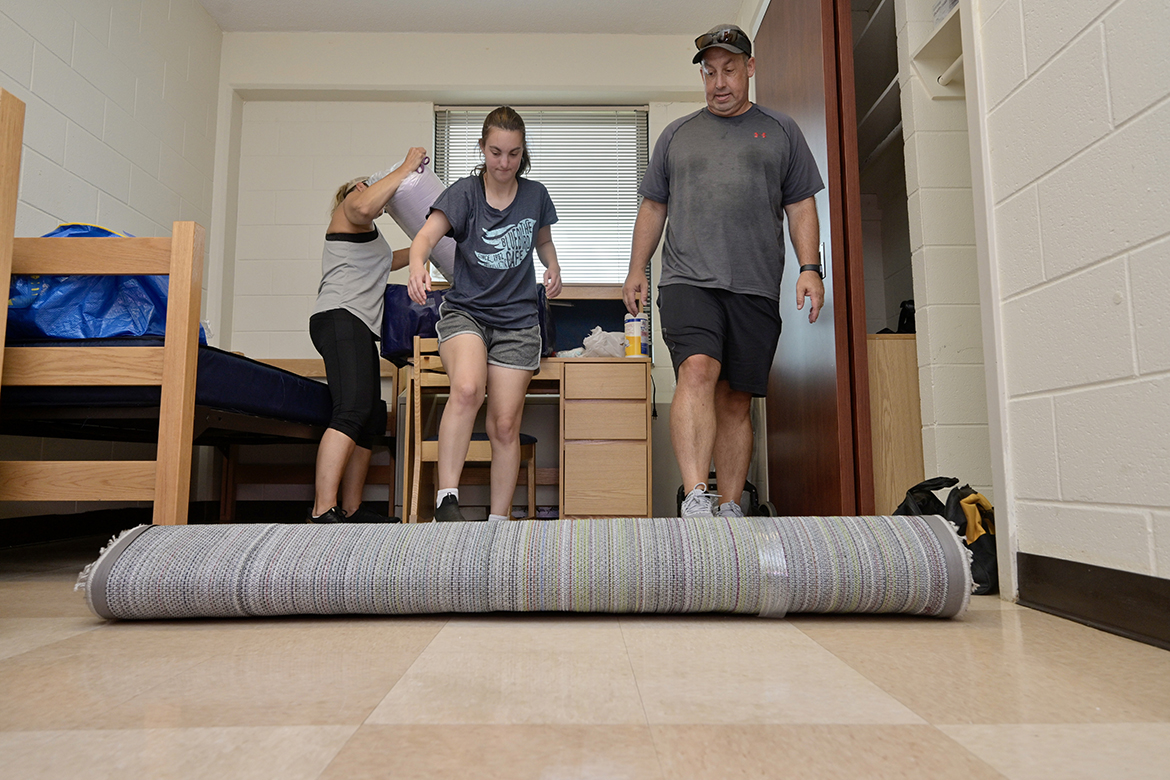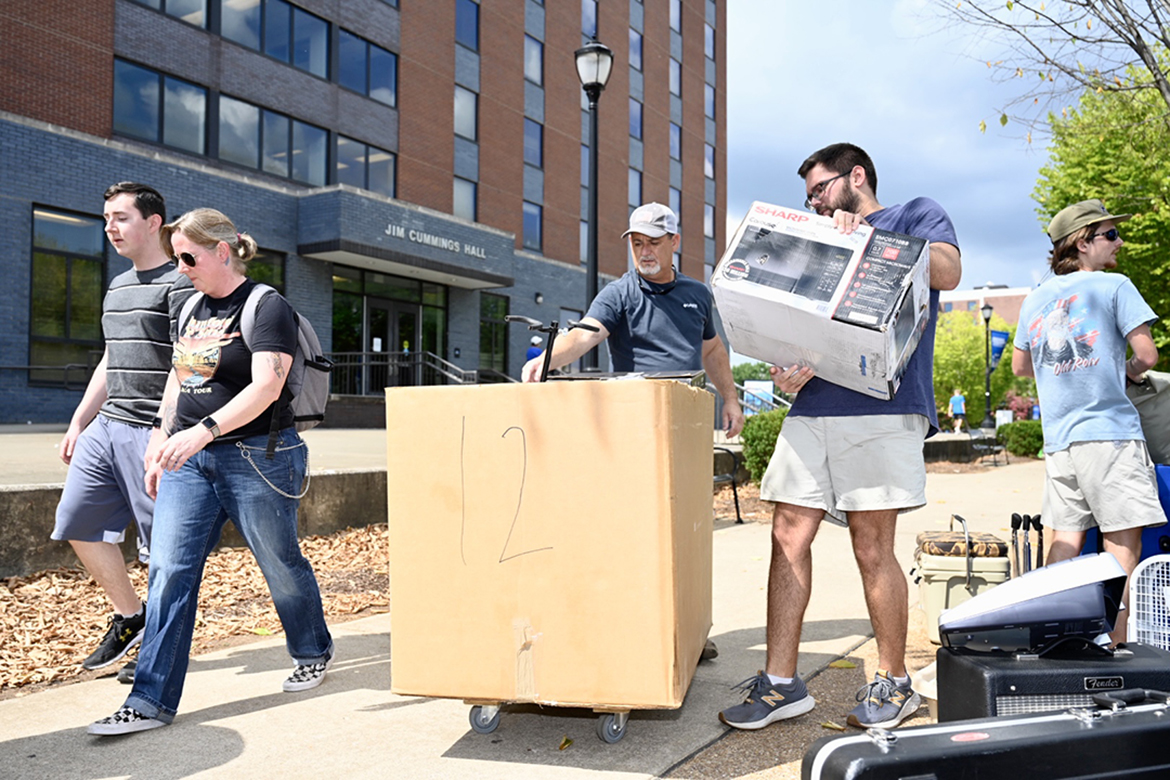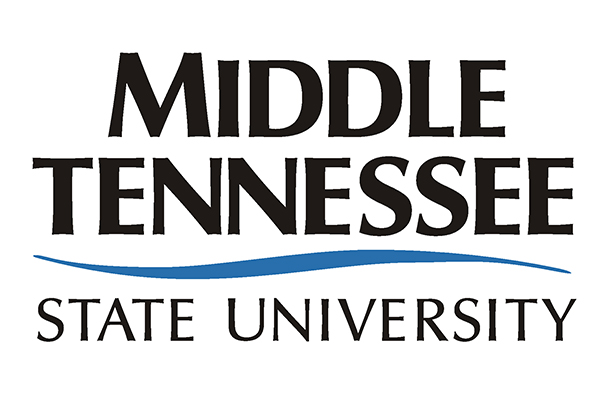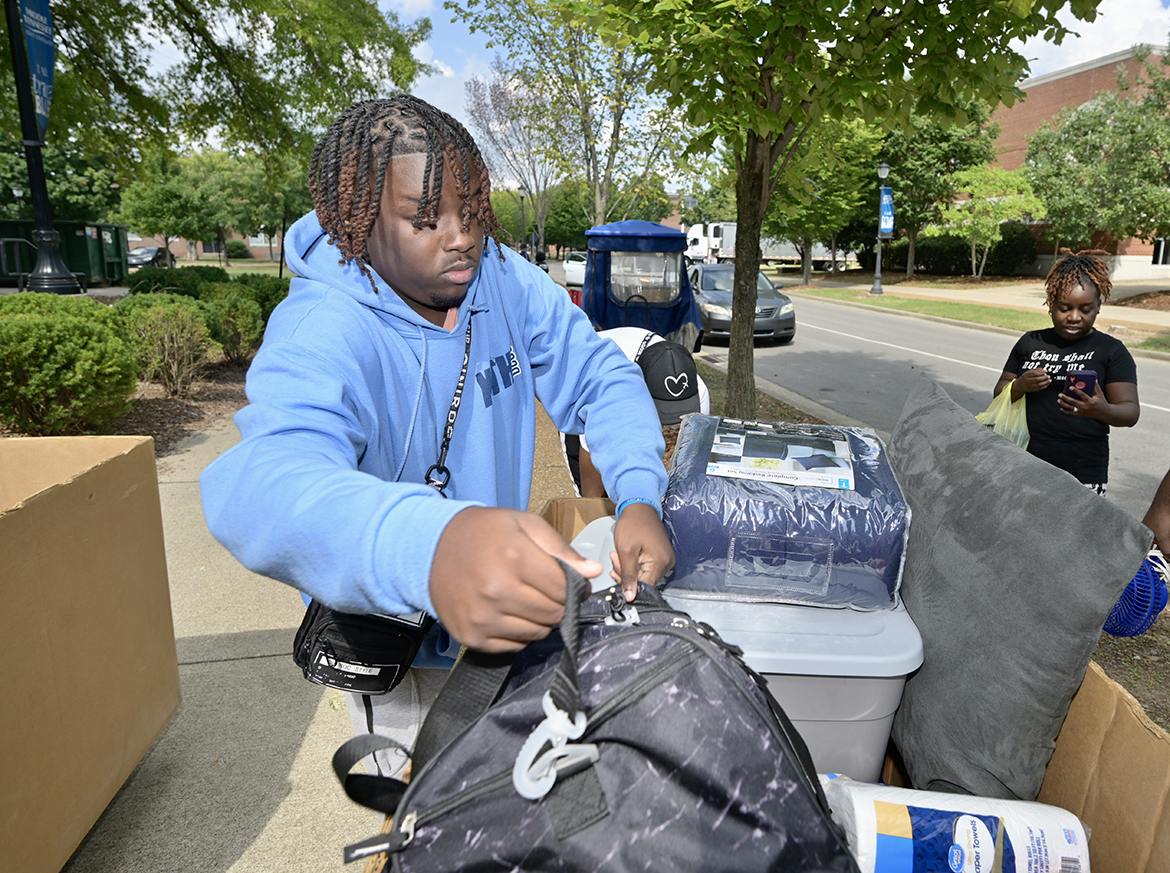Middle Tennessee State University’s residence halls for Fall 2023 are at capacity for the first time in recent memory, thanks to a combination of rising enrollment of new freshmen and transfer students and changes in the off-campus housing market.
Unlike other institutions in the state, however, MTSU does not require any students to live on campus. The university, which has a total enrollment of just over 20,000, has about 3,000 spaces in its 15 residence halls and two on-campus apartment complexes. Most in-person students live in off-campus apartments or homes and commute to campus for classes.

“The high volume of requests for on-campus housing caused us to need to move to a waiting list by early May,” said Debra Sells, vice president for student affairs and vice provost for enrollment services. “By mid-May, we knew that it was not realistic to think we would be able to provide on-campus housing for any more, and so we also closed the waiting list.”
Sells said newly admitted students were advised “in our very earliest communications with them that at MTSU, housing is not required for new freshmen nor guaranteed to them.” Typically, she said, about half of MTSU’s entering freshmen class lives in on-campus spaces.

Sarah Sudak, associate vice president and dean of students, said the university has invited local apartment complexes to participate in CUSTOMS, the series of orientation sessions held over the summer for new freshmen and transfers, to showcase off-campus housing options.

Also, she said, the June Anderson Center for Women and Nontraditional Students hosts an off-campus housing website, where students may learn more about local housing options and search for roommates. You can reach the site at https://offcampushousing.mtsu.edu.
Michelle Safewright, MTSU’s director of housing, said the increased demand for on-campus housing may be attributable to changes in the apartment market in Murfreesboro, prompting more sophomores, juniors and seniors to remain in residence halls.
“The apartment market in Murfreesboro has changed significantly in the past two years and this has impacted our students’ decisions to remain on campus after their first year as a financially smart choice,” she said.
Also, MTSU is tracking a 4.6% year-over-year increase in first-time freshman (1,398) and 7.7% increase in new transfers (933) enrollments for Fall 2023.


Sells said the housing staff are working to accommodate the students who remain on the waiting list through spaces that become vacant as students change their mind and ask to cancel their on-campus reservation. Also, the university’s Parent and Family Association maintains a Facebook group page, which has helped link new students with off-campus housing opportunities.
“One thing I love about MTSU is how closely we work with the parents of our students,” said Laurie Witherow, associate vice provost. “The MTSU Parent and Family Association Facebook page has become a vehicle for more than 11,000 parents to engage with the university and with each other. Right now, they are busy making connections and referrals for parents finding apartments, houses, and roommates for their students.”

Meanwhile, the university’s Board of Trustees will consider a proposal Tuesday, June 20, that would enable the university to begin the process to partner with a private developer to redevelop the site of the current Womack Lane Apartments to meet rising on-campus housing demand. Womack Lane was built in phases beginning in the late 1960s before completion in 1972.

Alan Thomas, vice president for business and finance, said MTSU will engage a consulting group “to assist with developing a capital project that would involve a public-private partnership to provide additional housing on the campus.”
Thomas said the consultant “will perform a feasibility study that looks at current housing and potential future needs, as well as assisting with the bidding process and creation of an operating agreement with the potential operator.”
— Andrew Oppmann (Andrew.Oppmann@mtsu.edu)


COMMENTS ARE OFF THIS POST